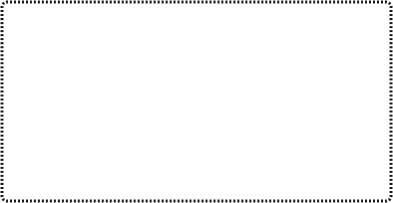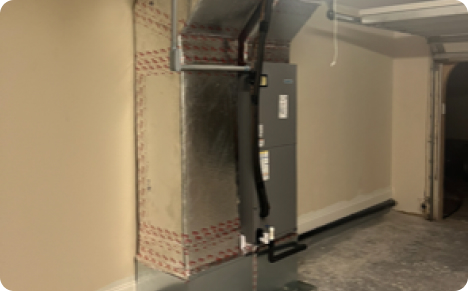What is the Average Lifespan of an AC Unit in Florida
Written By : Mukund Kava
08/08/2025
6 Mins
Florida summers don’t mess around. With heat, humidity, and little relief most of the year, air conditioning isn’t just a comfort—it’s a necessity. If you live here, your AC works harder and longer than just about anywhere else.
So it’s only natural to wonder: how long do AC units last in Florida? The average lifespan of AC unit in Florida is shorter than the national average, and several local factors play into that. Understanding what affects your system’s longevity and when it’s time to replace it can save you serious money and frustration down the road.
The Average Lifespan of AC Unit in Florida
Nationally, central air conditioners are built to last around 15 to 20 years, according to the U.S. Department of Energy. But if you live in Florida, your AC unit is working in a whole different climate. The average lifespan of AC unit in Florida is closer to 10 to 15 years, and for good reason.
Florida’s humidity, salt air, and almost year-round cooling season put way more stress on your system. It’s like comparing a car that cruises to the store once a week to one used daily for cross-country driving. Your AC is under constant pressure to keep up.
Here’s how it breaks down across the state:
- Coastal Regions (e.g., Miami, Tampa, Sarasota): Expect your system to last 10–12 years on average. Salt in the air speeds up rust and corrosion on the outdoor unit.
- Inland Areas (e.g., Orlando, Ocala, Lakeland): You’ll typically get a bit more life, up to 15 years, if your system is well-maintained and protected from excess moisture.
In both cases, maintenance makes all the difference. If your unit hasn’t had regular checkups or it’s been exposed to rough conditions, its lifespan drops fast.
Factors that Affect AC Lifespan in Florida
Your system’s survival depends on more than just brand or age. Here’s what really makes or breaks your AC in Florida:
Florida Humidity
Moisture builds up quickly, creating ideal conditions for mold and mildew and corroding your evaporator coils. The higher the humidity inside your home, the harder your AC has to work.
Salt Air & Coastal Conditions
If you live near the beach, salt exposure causes metal components to rust much faster. That includes your outdoor condenser coils.
Constant Usage & Long Cooling Seasons
In Florida, your AC isn’t catching a break. Most people run their units 10–12 months a year, often nonstop during summer. That extra load shortens its life.
Lack of Routine Maintenance
Skipping your annual AC tune-up? You’re setting your system up to fail. Units without regular maintenance lose 5% efficiency per year. Use this HVAC maintenance checklist to stay ahead.
Dirty or Clogged Air Filters
Restricted airflow stresses the blower and compressor. Check filters monthly and change every 30–60 days.
Thermostat Misuse
Cranking it to 65° won’t cool your house faster—it just makes your system work harder. Smart thermostats help regulate usage without waste.
Poor Insulation or Leaky Ductwork
If cool air is escaping, your AC runs longer to reach the same temperature. Seal ducts and insulate well to reduce that strain.
Tips to Increase AC System Life Expectancy in Humid Climates
If you want to stretch every year from your AC, here’s how to make it last:
- Schedule Professional AC Maintenance Twice a Year: Do it in the spring and fall. Regular maintenance prevents breakdowns, keeps your system clean, and protects your investment.
- Change Filters Regularly: Swap them every 30–60 days, more often if you’ve got pets or allergies. It’s a cheap fix that saves your compressor.
- Install a Whole-House Dehumidifier: This eases the moisture burden on your AC, improves comfort, and helps reduce mold risks.
- Seal Ductwork and Improve Insulation: Avoid wasted cooling and keep your home evenly comfortable. DOE studies show duct sealing saves energy.
- Clean Outdoor Condenser Coils Annually: If you’re by the beach, rinse your coils every month. Inland? At least once a year.
- Invest in Smart Thermostats: Let them manage cooling schedules, save money, and prevent system overuse.
- Get Expert Installation: Improper sizing, bad ductwork, or poor design will tank your system early. Make sure your AC is installed correctly.
When to Replace Your AC in Florida?
You don’t want to replace your system too early, but you definitely don’t want it to fail in the middle of July. Here’s how to tell when the time is right:
- Over 10–12 Years Old: Even if it still runs, your AC may be losing efficiency. A newer model will cool better and cost less to run.
- Frequent Repairs: If you’re throwing money at repairs more than once or twice a year, or the cost adds up to 50% of a new system, it’s time to upgrade.
- Low Efficiency: Older systems may be rated at 10–13 SEER. New ones range from 15 to over 20 SEER. That upgrade can save you hundreds per year in electricity.
- Humidity & Comfort Problems: If your house feels sticky even when the AC is on, your system might not be properly dehumidifying due to age or damage.
Also, you may qualify for state rebates and incentives when switching to an ENERGY STAR unit.
Telltale Signs Your AC Unit Is Nearing the End
Wondering if your AC is done for? Look for these red flags:
- Higher electric bills than usual
- Warm spots or weak airflow
- Loud rattling, buzzing, or banging
- Short cycles or runs nonstop
- Musty odors or extra indoor humidity
- Visible corrosion or leaking refrigerant
- Thermostat shows wrong room temperature
- Over 10 years old and never maintained
These are signs it’s costing you more to keep the old system alive than it would to replace it.
Florida AC Unit Replacement Timeline: How Long Different Systems Last?
Here’s how long you can expect each type of AC system to last in Florida’s climate. Knowing the average age of AC before replacement for your unit type can help you plan ahead and avoid sudden breakdowns:
- Central Air Units: 10–15 years
More common, but they take on heavy duct loads in large homes.
- Ductless Mini-Splits: 12–18 years
No ducts mean fewer airflow issues and longer life with less maintenance.
- Heat Pumps: 10–14 years
They run year-round for both heating and cooling, so they wear out faster.
- Window Units: 5–7 years
Florida humidity takes a serious toll on these compact systems.
Each system has its own pros, cons, and maintenance needs. Central systems are powerful but require proper ductwork. Mini-splits offer flexibility and efficiency but cost more upfront. Heat pumps offer year-round utility but wear faster. Window units are affordable but not built for Florida’s heavy use.
If your system is getting close to the end of its expected life, or already showing the signs, don’t wait for a mid-summer breakdown. Proactive planning is the smart move.
Not sure what to choose next? Schedule an inspection with a licensed HVAC pro to find the best replacement option for your home.
Need AC Replacement in Florida? Trust Clever Air for Long-Term Comfort
With over 7 years of experience, Clever Air knows Florida AC systems inside and out. From thorough diagnostics to AC replacements, we make sure your next system keeps you cool for years to come. Our certified pros focus on high-efficiency installs (up to 20+ SEER), customized plans based on your space and usage, and pricing that’s transparent and fair.
We offer comprehensive AC services, flexible financing options, and access to energy rebates that help you save even more.
Call (941) 713-1949 or schedule online now for expert consultation and long-term cooling you can count on.
Open 24/7
Call now for fast and reliable AC repair services.









